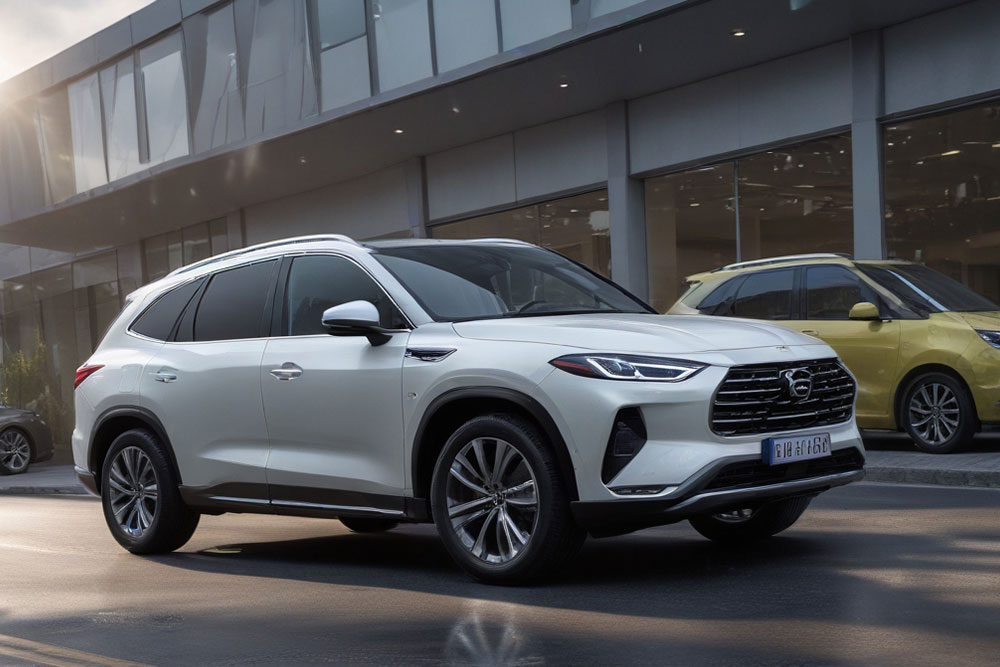Hybrid SUVs – Features, Specs, and Benefits
Fuel efficiency is an important aspect of buying a car. Hybrid SUVs are powered by an internal combustion engine and one or more electric motors, ensuring the vehicle burns less gasoline. This way, hybrid SUVs are more fuel-efficient than traditional petrol-powered vehicles while retaining all the other essential features of a regular SUV. When buying a hybrid SUV, one should understand how it works, its benefits, and price ranges to make the right decision.

Features and specs of hybrid SUVs
- Powered by internal combustion and electric motors
These vehicles have at least one electric motor, which utilizes energy stored in batteries. Additionally, they are powered by an internal combustion engine. A hybrid vehicle isn’t plugged in for battery charging; rather, regenerative braking and the combustion engine are used to charge the battery.
In regenerative braking, the battery is recharged using braking power. In other words, kinetic energy generated by brakes, which is usually wasted, is converted to electrical energy; this saves fuel considerably. In these vehicles, a computer monitor reflects how hard one presses the brake pedal. The traditional brakes, i.e., the pads and rotors, get merged during emergency braking situations to apply a hard brake. The vehicle’s electric motor provides it with additional power, which can be used to ensure better fuel economy without compromising the vehicle’s performance. - Small but powerful batteries
Usually, electric vehicles (EVs) work on one-pedal driving—the ability to stop or slow down the vehicle using only the accelerator pedal—because of which they have larger batteries. But with hybrid SUVs, the batteries are quite small, usually about one kilowatt-hour (kWh), which is only 1-2% of the size of a full EV’s battery. - Parallel and series hybrids
There are mainly two types of hybrid SUVs: parallel and series. The parallel ones are the most common, and they use a gasoline engine or an electric motor to power the vehicle. But if required, they can also leverage both simultaneously. When the car is at a lower speed, only the electric motor is utilized, but as it gains speed, the traditional gasoline-powered engine is roped in to provide momentum.
In contrast, series hybrids have a primary drive motor, which uses a regen-collected battery to power the vehicle at low speeds. As the speed increases, the engine switches to a gasoline-powered generator, which converts gasoline power into electricity. This way, the vehicle is always powered by electricity. Although there is an added process here of converting gasoline to electricity, which can make the process a little less efficient, newer models by premium automobile brands achieve this quite seamlessly. - Suited to city driving
Hybrid SUVs typically lend themselves to driving within city limits, wherein the fuel tank is easily emptied because of frequent stops and starts. In such cases, the electric motor provides instant torque and can help with the acceleration of the vehicle. In cases of higher speeds, such as on highways, the vehicle relies extensively on electric power. Meanwhile, the engine charges the electric battery pack.
Benefits of hybrid SUVs
- Better fuel efficiency
Hybrid SUVs are the way to go for those who would like to reduce fuel consumption and contribute to lower emissions. At the same time, these cars do not compromise on power, as the gasoline engine promptly steps in at higher speeds. So, hybrid SUVs conserve energy while not taking away from the superior performance of conventional SUVs. - Low running costs
Since hybrid cars do not continuously make use of fuel, the fuel tank need not be refilled as frequently as the ones in regular SUVs. So, the running costs of these SUVs are quite low, making them cost-effective in the long run. - No dependency on charging points
As opposed to EVs, which need to be charged from time to time, hybrid SUVs can continue to function on gasoline fuel even if the battery runs out and there’s no charging point nearby. So, in emergency situations or if one is in off-road terrain without any charging points, one need not worry about charging the vehicle at once. - Less maintenance required
Since hybrid vehicles leverage electric energy at lower speeds, the engine isn’t prone to much wear and tear, which ensures that the maintenance required on the vehicle is minimal. The brakes also last for longer periods, so one doesn’t have to maintain them very frequently.
The average cost of hybrid SUVs is $41,000, but this may differ based on the type, model, and brand chosen. Moreover, when buying a hybrid SUV, one should research the different available models and brands and the features offered for each. Also, the type of SUV chosen should depend on one’s expected usage of the vehicle and the speeds at which one usually drives their car. One should also gauge one’s requirements to determine the ideal size of SUV to buy.
Finally, one should set a budget range and decide whether to buy a brand-new or used hybrid SUV. In the case of a used car, it’s important to check the vehicle’s identification number (VIN) and ownership history and do a thorough inspection of the car. The hybrid SUV should be purchased only from genuine vehicle dealers, and one should check its mileage and features before buying it.
Disclaimer:
The content provided on our blog site traverses numerous categories, offering readers valuable and practical information. Readers can use the editorial team’s research and data to gain more insights into their topics of interest. However, they are requested not to treat the articles as conclusive. The website team cannot be held responsible for differences in data or inaccuracies found across other platforms. Please also note that the site might also miss out on various schemes and offers available that the readers may find more beneficial than the ones we cover.